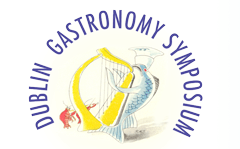Start Date
31-5-2022 2:15 PM
End Date
31-5-2022 2:45 PM
Description
Irish cheese-making has a remarkable history. Before the current renaissance and the preceding disruption of tradition in the context of British imperialism and Atlantic World trade lay a long period during which Ireland possessed an exceptionally complex culture of dairy production which included multiple distinct cheese-types, as demonstrated by Ó Sé (1948) in his seminal article on the subject.The generic word for ‘cheese’ in Irish, cáis, so used already in Middle Irish, is derived from Latin caseus and this borrowing occurs also in Brittonic Celtic (Welsh caws) and all the West-Germanic languages (English cheese, Dutch kaas). There is strong evidence that the success of caseusamong West-Germanic peoples reflected the introduction of a new kind of dairy product—aged cheese produced with rennet—in the context of Roman imperial expansion. We might then well ask if the same process accounted for the success of caseus among the Celts of Britain and Ireland.Building on my recent research on prehistoric cheese-making among the Continental Celts, I argue that, unlike the West-Germans, the Insular Celts were not introduced to rennet-made aged cheese by the Romans but rather that Celtic speakers moving into the British Isles brought with them native traditions of such cheese-making; success of the word caseus in Insular Celtic was essentially a lexical innovation initiated in the context not of Roman imperialism but of early Christian monasticism. Crucial evidence is adduced from my analysis of the earliest Irish cheese-related terminology, key elements of which clearly predate any Roman influence.
DOI
https://doi.org/10.21427/3kmb-k158
Cé a bhog mo cháis? The Celtic Origins of Early Irish Cheese-making
Irish cheese-making has a remarkable history. Before the current renaissance and the preceding disruption of tradition in the context of British imperialism and Atlantic World trade lay a long period during which Ireland possessed an exceptionally complex culture of dairy production which included multiple distinct cheese-types, as demonstrated by Ó Sé (1948) in his seminal article on the subject.The generic word for ‘cheese’ in Irish, cáis, so used already in Middle Irish, is derived from Latin caseus and this borrowing occurs also in Brittonic Celtic (Welsh caws) and all the West-Germanic languages (English cheese, Dutch kaas). There is strong evidence that the success of caseusamong West-Germanic peoples reflected the introduction of a new kind of dairy product—aged cheese produced with rennet—in the context of Roman imperial expansion. We might then well ask if the same process accounted for the success of caseus among the Celts of Britain and Ireland.Building on my recent research on prehistoric cheese-making among the Continental Celts, I argue that, unlike the West-Germans, the Insular Celts were not introduced to rennet-made aged cheese by the Romans but rather that Celtic speakers moving into the British Isles brought with them native traditions of such cheese-making; success of the word caseus in Insular Celtic was essentially a lexical innovation initiated in the context not of Roman imperialism but of early Christian monasticism. Crucial evidence is adduced from my analysis of the earliest Irish cheese-related terminology, key elements of which clearly predate any Roman influence.
